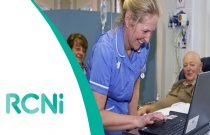02_17 Image Interpretation of the Ankle: Session 2
Nick Woznitza
This session will describe common fractures, dislocations, pathologies and normal variants found in the ankle. These will be illustrated using radiographic examples.
Image Interpretation - Adult Skeleton (X-ray): Elbow - Session 1
Sarah Gallimore
This session will look at injuries related to the elbow joint. It will focus on identifying anatomy demonstrated on both diagrams and radiographs, and offer examples of radiographic technique. Mechanisms of injury (MOI) will be discussed to develop a knowledge base in clinical presentations.
Image Interpretation - Adult Skeleton (X-ray): Foot - Session 1
Kevin Harvell, Kathy Dewar
This session will look at injuries related to the toes, metatarsals and the tarsal bones. It will focus on identifying anatomy demonstrated on both diagrams and radiographs, and offer examples of radiographic technique. Mechanisms of injury will be discussed to develop a knowledge base in clinical presentations.
Image Interpretation - Adult Skeleton (X-ray): Knee - Session 2
Tracy O'Regan
This session will describe common fractures, dislocations, pathologies and normal variants found in the knee, tibia and fibula. These will be illustrated using radiographic examples.
Image Interpretation - Adult Skeleton (X-ray): Knee - Session 3
Tracy O'Regan
A self-assessment quiz based on Image Interpretation - Adult Skeleton (X-ray): Knee - Sessions 1 and 2.
Image Interpretation - Adult Skeleton (X-ray): Shoulder - Session 2
Joanne Hargreaves
This session will describe common fractures, dislocations, pathologies and normal variants found in the gleno-humeral joint, clavicle, scapula and humerus. These will be illustrated using radiographic examples.
Reversal of Neuromuscular Blockade
Elizabeth Flockton and Chris Parker
This session reviews both the assessment of residual neuromuscular block and the mechanism of action of the chemical agents that antagonise it.
Aminosteroid Neuromuscular Blocking Agents
RG Craig and CJ Parker
This session explores the pharmacokinetic and pharmacodynamic properties of the aminosteroid neuromuscular blocking agents (NMBAs). It explores: the relationship between the chemical structure of these agents, their potency and their route of elimination; the relationship between potency and rate of onset; the use of neuromuscul....
Non-Depolarising Muscle Relaxants: General Properties
Elizabeth Flockton and Chris Parker
This session introduces the action of non-depolarising muscle relaxants.
Epidemiology and Transmission of STIs
Dr Katie Boog
This session describes the epidemiology, risk factors, signs, symptoms, and complications of common sexually transmitted infections (STIs) in the UK.
Unintended Pregnancy and Abortion
Dr Michelle Cooper, and Dr Deepthi Lavu
This session discusses unintended pregnancy, how to conduct a consultation with women seeking abortion or those who are undecided. It also gives a synopsis of abortion procedures and referral pathways for obtaining an abortion. It gives a brief overview of the legislative framework for conducting abortions legally in the UK unde....
Assessment and Management of Agitation and Delirium
Annabel Price
This session provides a framework for recognising and managing agitation in patients with advanced illness. It was reviewed by Felicity Wood and Sarah Hanrott and last updated in May 2023.
Electro-oculography
Dorothy Thompson
This session covers the underlying physiological changes measured by electro-oculography (EOG), clinical indications, how the test is carried out and the interpretation of an EOG report.
Understanding and respecting patient confidentiality
Bob Price
1.00 Hours
Nurses face a particular challenge in respecting the confidentiality of patients in a world where information is quickly shared and where information about illness can be sensitive. We have a duty of care towards patients. That duty includes maintaining privacy (protecting them from undue intrusion), and confidentiality (by the....
Effective presentation skills for nurses
Mark Foulkes
This learning module emphasises the importance of effective presentation skills. Such skills allow nurses to share knowledge and expertise and to communicate clearly in a range of workplace scenarios. Nurses are increasingly being asked to present in formal and informal situations, such as conferences, poster presentations, job....
Managing malnutrition in patients (and residents) with dementia
Liz Anderson and Carolyn Best
As dementia progresses, an individual may experience increasing difficulties in eating and drinking safely. Evidence suggests that admission to hospital may exacerbate these problems. This learning module aims to familiarise readers with some of the issues associated with providing good nutritional care for a patient with dement....
Improving compliance with hand hygiene practices
Heather Gluyas
Healthcare-associated infections (HCAIs) continue to be a challenge in developed and developing countries. Hand hygiene practice is considered to be the most effective strategy to prevent HCAIs, but healthcare workers' compliance is poor. Using a human factors perspective, this learning module explores elements that affect healt....
Diagnosing, assessing and managing pre-eclampsia
Layla Lavallee
Pre-eclampsia is a complex and unpredictable disorder that may occur during pregnancy. Its presentation ranges from mild to severe, and the condition may lead to the death of the mother and/or the baby in extreme cases. The earlier the disorder is detected and managed, the better the outcome. This learning module provides an out....
Promoting patient safety through effective communication and teamwork
Heather Gluyas
1.00 Hours
Teamwork requires co-operation, co-ordination and communication between members of a team to achieve desired outcomes. In industries with a high degree of risk, such as health care, effective teamwork has been shown to achieve team goals successfully and efficiently, with fewer errors. This learning module introduces behaviours....
Trauma-Informed Care for Displaced Populations
Kathleen Guarino, LMHC
4.00 Hours
This CE course provides leaders and other health care professionals, who are looking to improve their effectiveness in engaging displaced populations, information on the process of integrating a trauma-informed approach by discussing background information on displaced populations and trauma-informed care, along with the trauma-....
Traumatic Brain Injury in the US - Epidemiology and Rehabilitation
Center for Disease Control and Prevention, Thomas R Frieden, MD, Debra Houry, MD, Grand Baldwin, PhD
3.00 Hours
This CE course discusses the known incidence of traumatic brain injury, including trends over time; prevalence of traumatic brain injury-related disability; the adequacy of TBI outcome measures; factors that influence differential TBI outcomes; and the current status and effectiveness of TBI rehabilitation services.






















